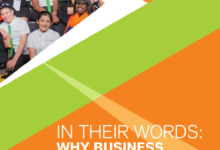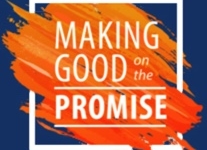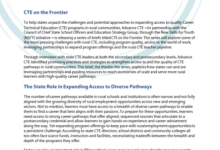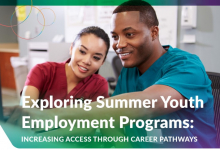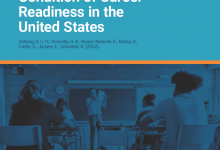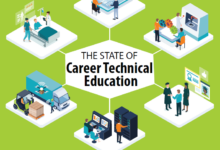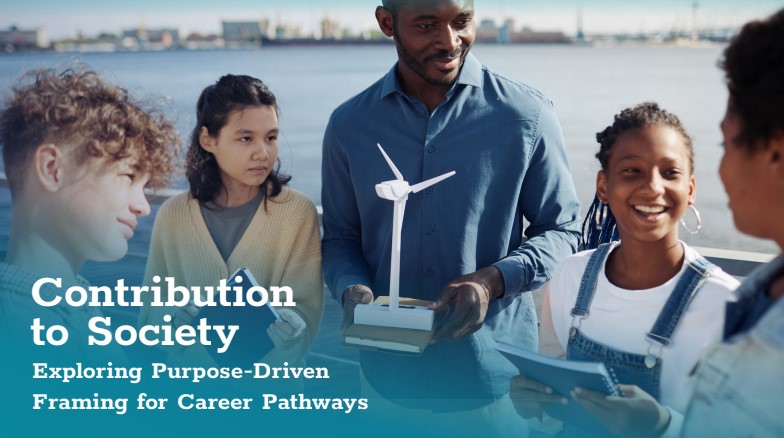Today’s learners are looking to explore career options that allow them to change their communities and often the language used to communicate careers and skill-building falls short of connecting a career path with a learner’s passion. Similarly, while employers are searching for ways to increase dedication and retention among employees while also building a robust talent pipeline, employers are challenged to connect the skills and knowledge gained in Career Technical Education (CTE) programs to their employment needs.
Contribution to Society: Exploring Purpose-Driven Framing for Career Pathways builds the case for purpose-driven framing for career advising, shares the results from preliminary research into this type of framing and lays out both implications for different populations and future work needed to validate and implement this framing.
To better understand “contribution to society” as a frame for CTE, Advance CTE commissioned focus groups of both CTE and non-CTE learners at different levels and conducted in-depth interviews with business professionals responsible for hiring across six industries.
Advance CTE’s preliminary research shows that:
- Titles and descriptions of programs of study or industry sectors alone are insufficient for effective advising;
- Employers often misunderstand titles and descriptions of CTE programs or pathways and that these descriptions of programs do not consistently align with descriptions of their work; and that
- The most effective framing of a program of study – for both learners and employers – links a learner’s contribution to society to their career goals.
This resource was made possible through the generous support of the Bill & Melinda Gates Foundation. Additional appreciation goes to Edge Research for participant recruitment and focus groups and interview facilitation.

